looking backwards to move forward
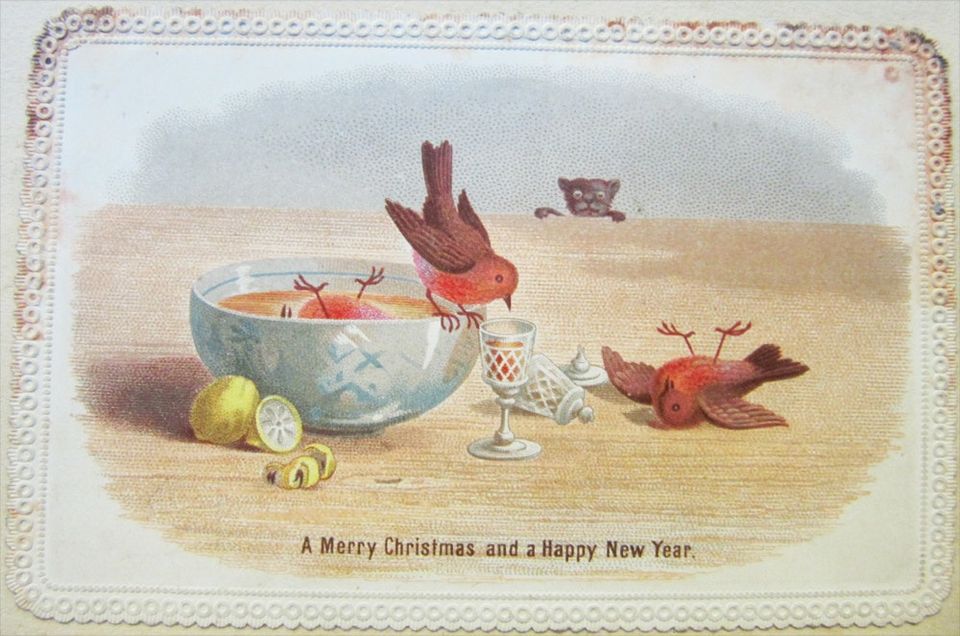
Hello friends! It’s been too long. Let’s get at it. Starting out with my favorite thing this time of year, which is: weird Victorian Christmas cards. Almost every one I’ve seen brings me joy and confusion in equal measure (and a healthy dose of foreboding). There’s a good round-up here, but it doesn’t quite dig into the meat of the symbolism as much as I want except for why there are so many dead birds on the cards.
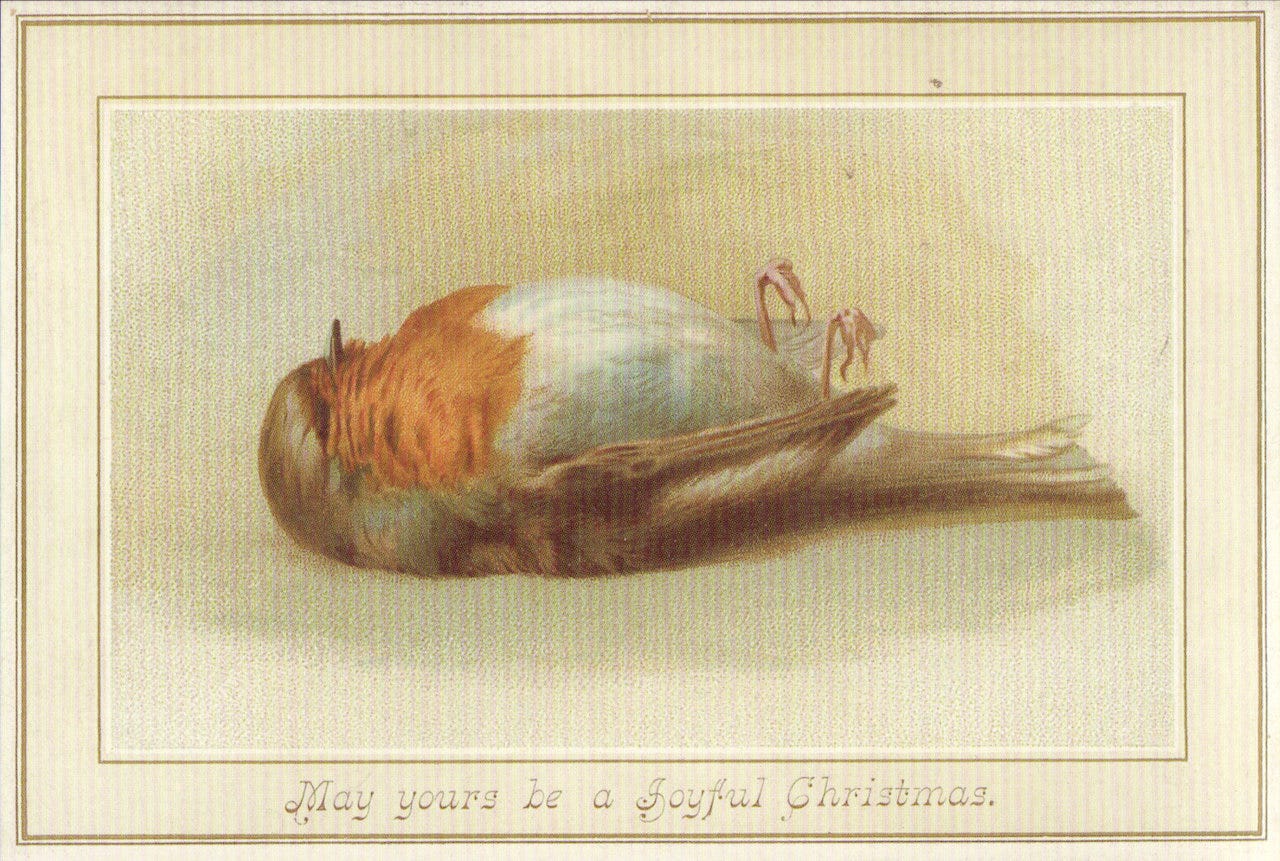

This is from a while ago, but the artist Céleste Bouriser-Mougenot put together an art installation with 70-80 zebra finches in a room with electric guitars hooked up to amps, and as the birds land on the guitars, notes play.
Mandy Patinkin did an absolutely breathtaking interview with the New Yorker and I’m still thinking about it months later:
I know from reading past interviews that you have struggled with perfectionism for a long time.
I’ll give you a beautiful story: My children watched me be too hard on myself for years. They’d come to performances, concerts. Then they’d hear their father criticizing it afterwards. One day, my son Gideon and I are walking down the street on the Upper West Side and he wants to talk about his life. He’s talking about bad nights, good nights, et cetera. And he says, “I watched you suffer for so many years over things that I could never understand what you were suffering about, because I was there and I saw it and it was great. I watched you suffering, and I learned that it was meaningless, that it had no worth, it was for nothing.” And I started to weep. All that suffering ended up being a gift to my sons, who knew that it was never worth it.
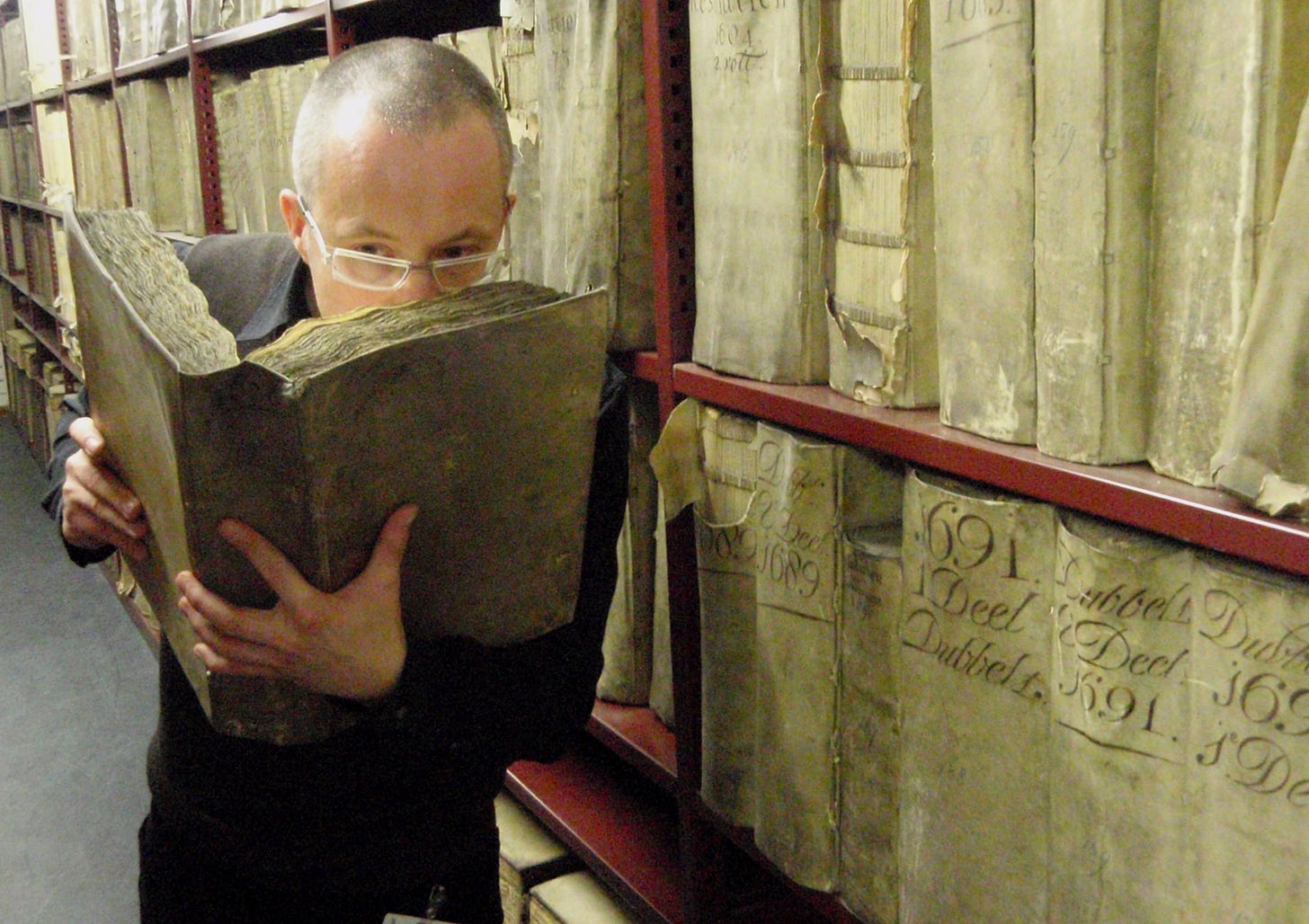
Researchers are working on figuring out what the past smelled like, which is much harder than it even seems:
…unlike, for instance, color or music, smell isn’t broken as easily into universally accepted components. Though technology has made it easier to isolate the chemical compounds of a smell, odors are also highly context dependent. There are functionally an infinite number of scents that could be preserved.
Also, I love this: part of the piece showcases an exhibit at the Rijksmuseum in the Netherlands, where you look at Jan William Pieneman’s 1824 painting of Waterloo while smelling what the battle might have smelled like:
…gunpowder, horses, wet earth, anxiety sweat, leather. Overlaid with a reconstruction of Napoleon’s perfume, called acqua mirabilis, which contained rosemary, bergamot and bitter orange.
One of my favorite facts is that the reason the sunset in The Scream is so red is that it was particulate matter from the Tambora eruption in 1815, so I am delighted that someone looked into air pollution in art from the Turner era (turn of the 19th century) to today.

It should go without saying I was a Horse Girl, which if you’re unfamiliar with the term, is pretty much what it says on the tin: those girls that were obsessed with horses in any and all forms (for me it was books, Breyer horses, and coveted riding lessons).
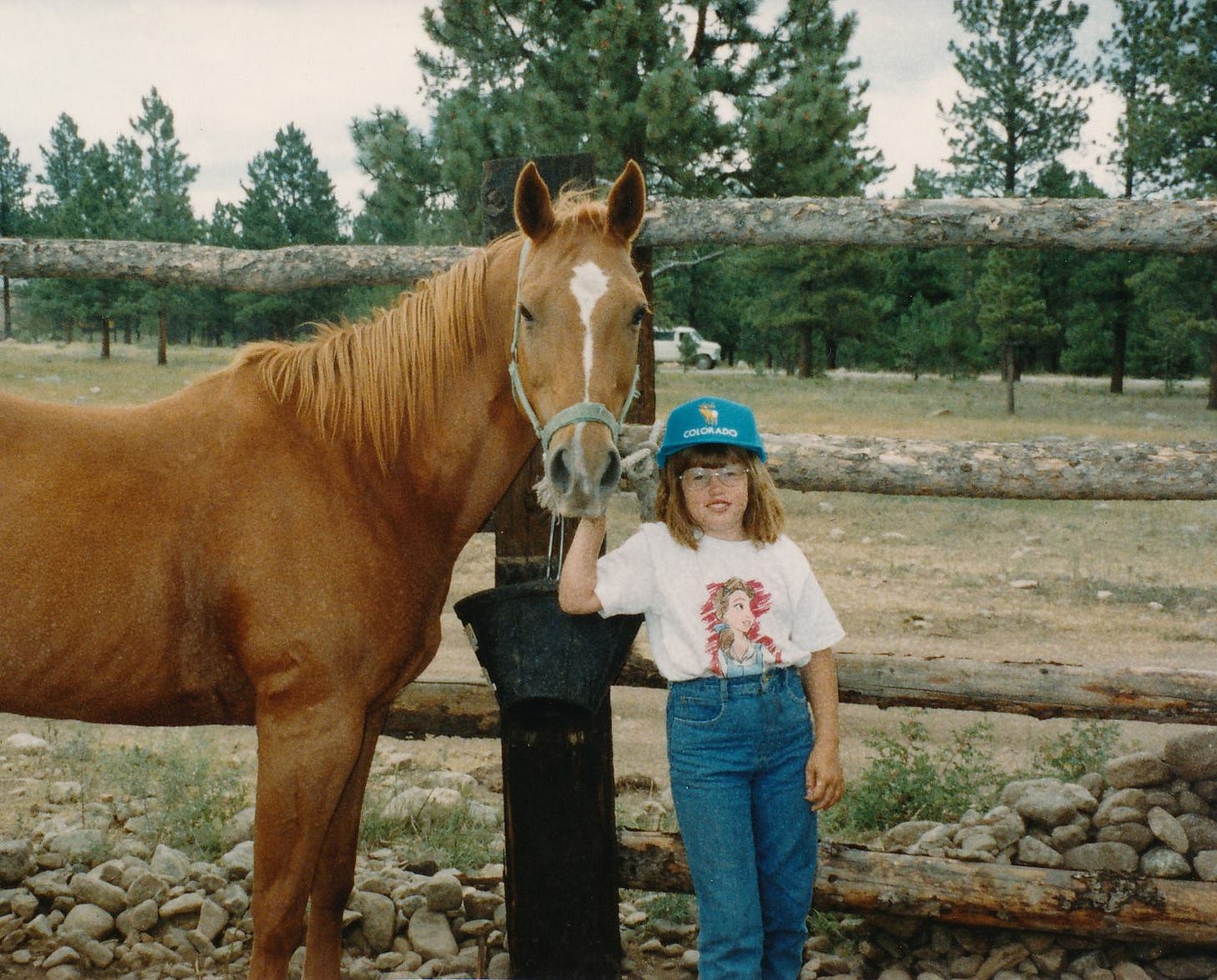
So I am thrilled Polygon put together a Horse Girl Week, where they talk about the Horse Girl Canon (I have recommendations, naturellement: Man O’ War, all Misty of Chincoteagues, King of the Wind, and the Felicity books), and I’m glad I’m not the only one that was terrified by going blind from diving in water, eyes open, from Wild Hearts Can’t Be Broken. Also, they make a very strong case for Aragorn (in the movies, not the books!) being a Horse Girl (I agree).
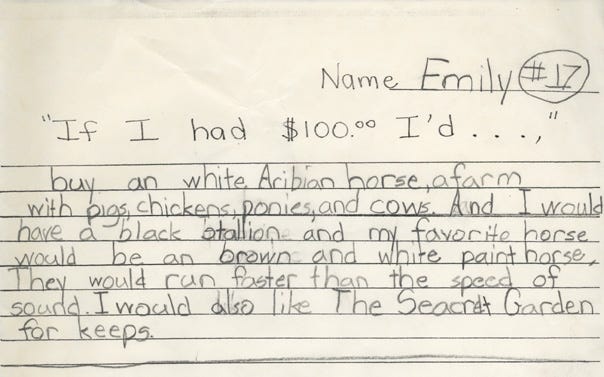
Three other critical pillars of my childhood got pieces written about them: the Klutz books, which were DIY books aimed at pre-teen girls, with topics ranging from juggling to friendship bracelets to braids (how I learned to do a fishtail braid!), and the covers are indelibly inked on my brain.
The second is about Cricket magazine, a literary magazine for children & pre-teens, which had incredible stories, poetry, and illustrations, and that I devoured, and eagerly transitioned to Cicada, their magazine for teens once that launched.
I have perhaps played more of The Sims (& sequels) than any other video game, so this dive into the semi-improvisational jazz soundtrack of the building mode of the game (which is where I spent 90% of my time) is just what I’m looking for. The difficulty of making “background music” wasn’t something I’d thought of—because they’d done it so skillfully:
Russo found it difficult to make intentionally unobtrusive music at first. "You would try to keep it so that a piece was interesting enough, but not so interesting that it took away from what was going on during a game,"
Oh, and a bonus dive into how reproducing the Heart of the Ocean from Titanic almost sank J. Peterman (I cannot express! how much! I wanted! the clothes!)
All I want to do is travel to this Japanese cafe for negative people:
Mori Ouchi also has private rooms that are especially quaint, looking like little cabins. Rather than being glum places to wallow in depression, they felt more like reassuringly cozy places of refuge from vaguely defined yet unpleasant things that negative-minded individuals can’t help thinking of
Also the drink names are amazing:
- On My Birthday, My Mom Sent Me a Melon from the Countryside, and I Didn’t Have the Heart to Tell Her that I Don’t Really Like Melon Very Much Anymore
- The Only Good Thing About My Dad Was That He Was an Earnest Person, But 22 Years Ago He Suddenly Disappeared, Leaving Behind a Letter That Said ‘Pegasuses are Real.”
- Yesterday, I Buried the Cursed Kokeshi Doll Deep in the Mountain Forest, But When I Woke Up This Morning It Was Back on My Shelf
In conclusion:
@ the new year pic.twitter.com/yFgAQQrCLP
— Amy (@amyis_trying) December 27, 2020
